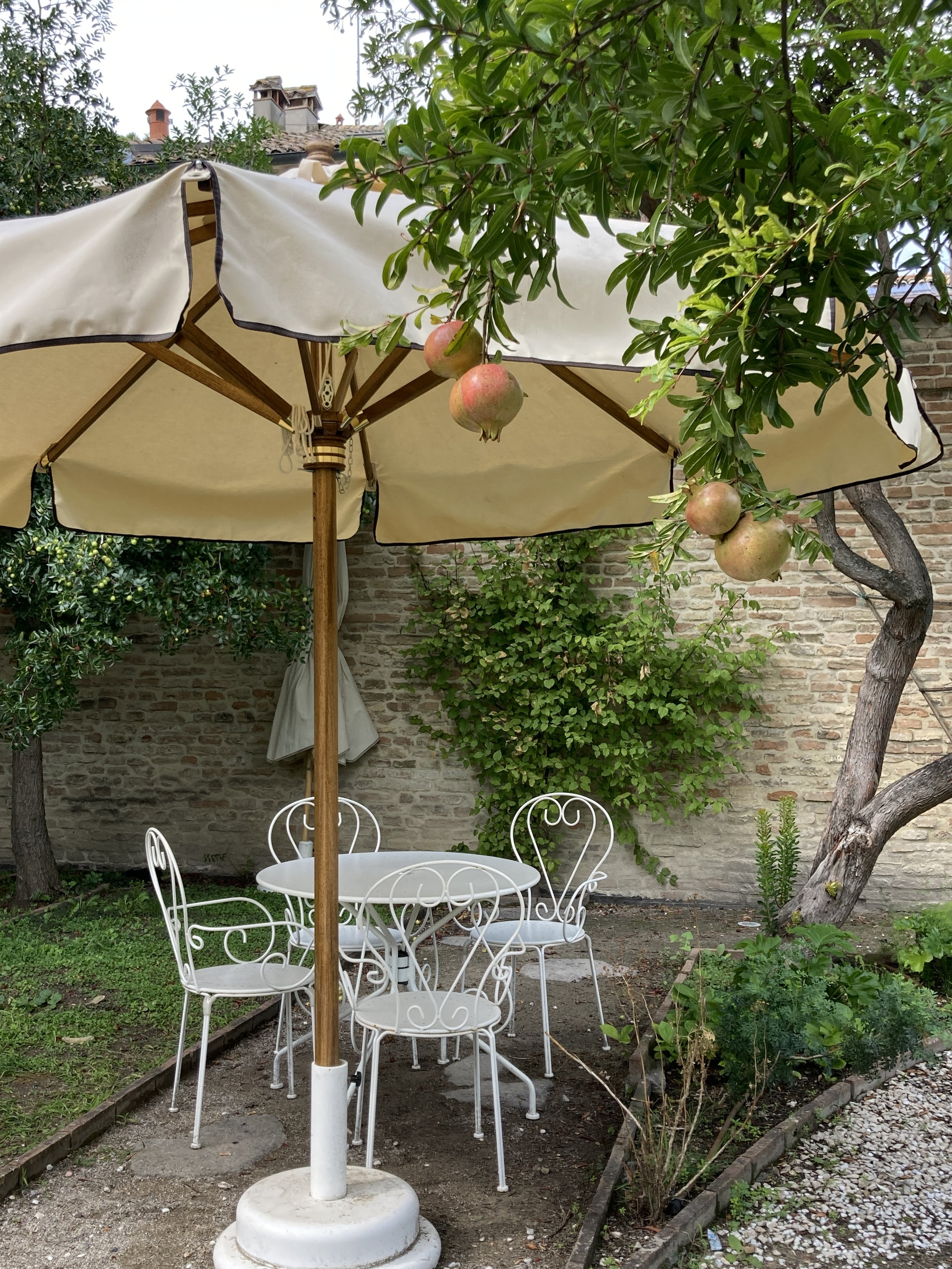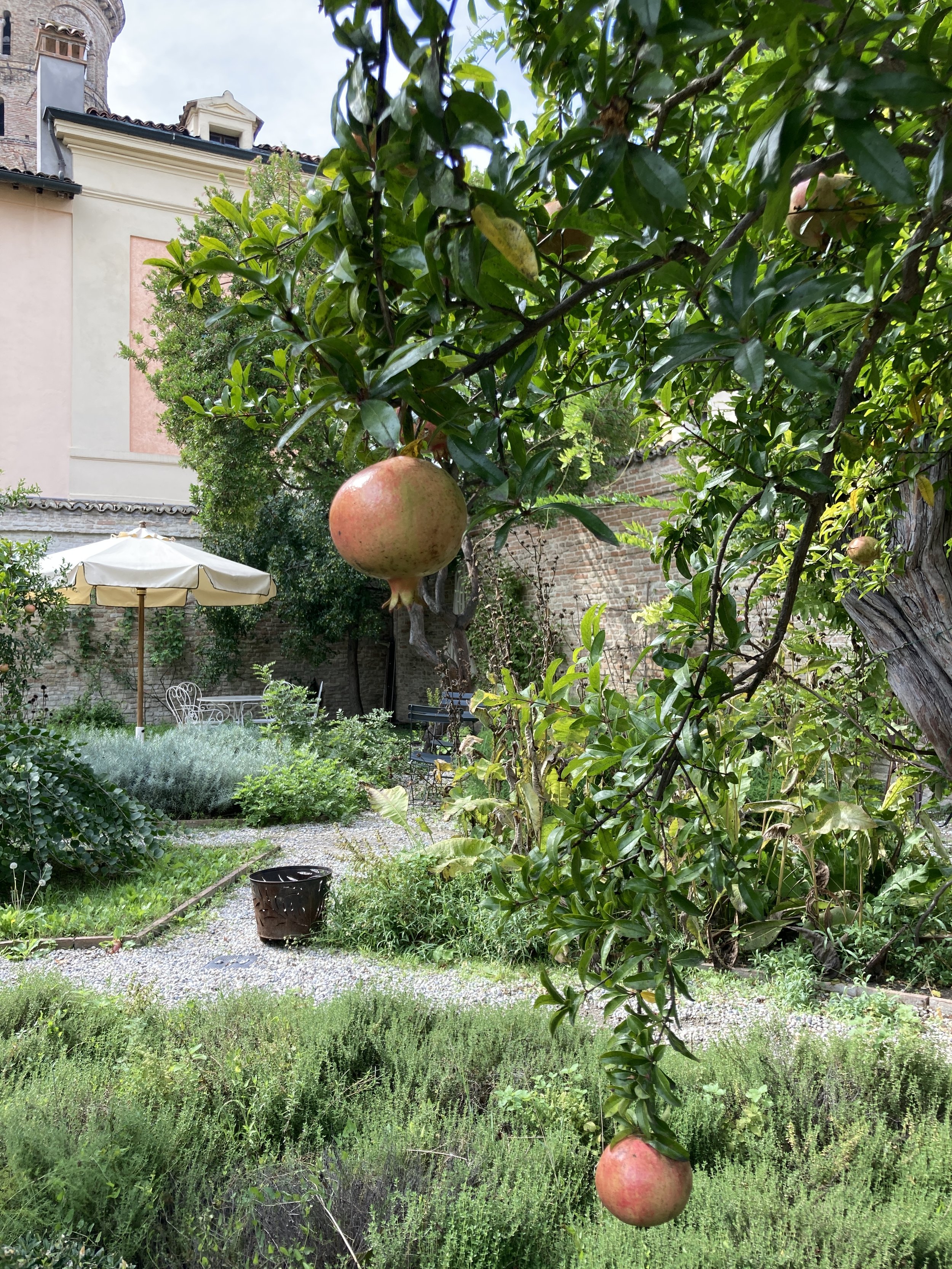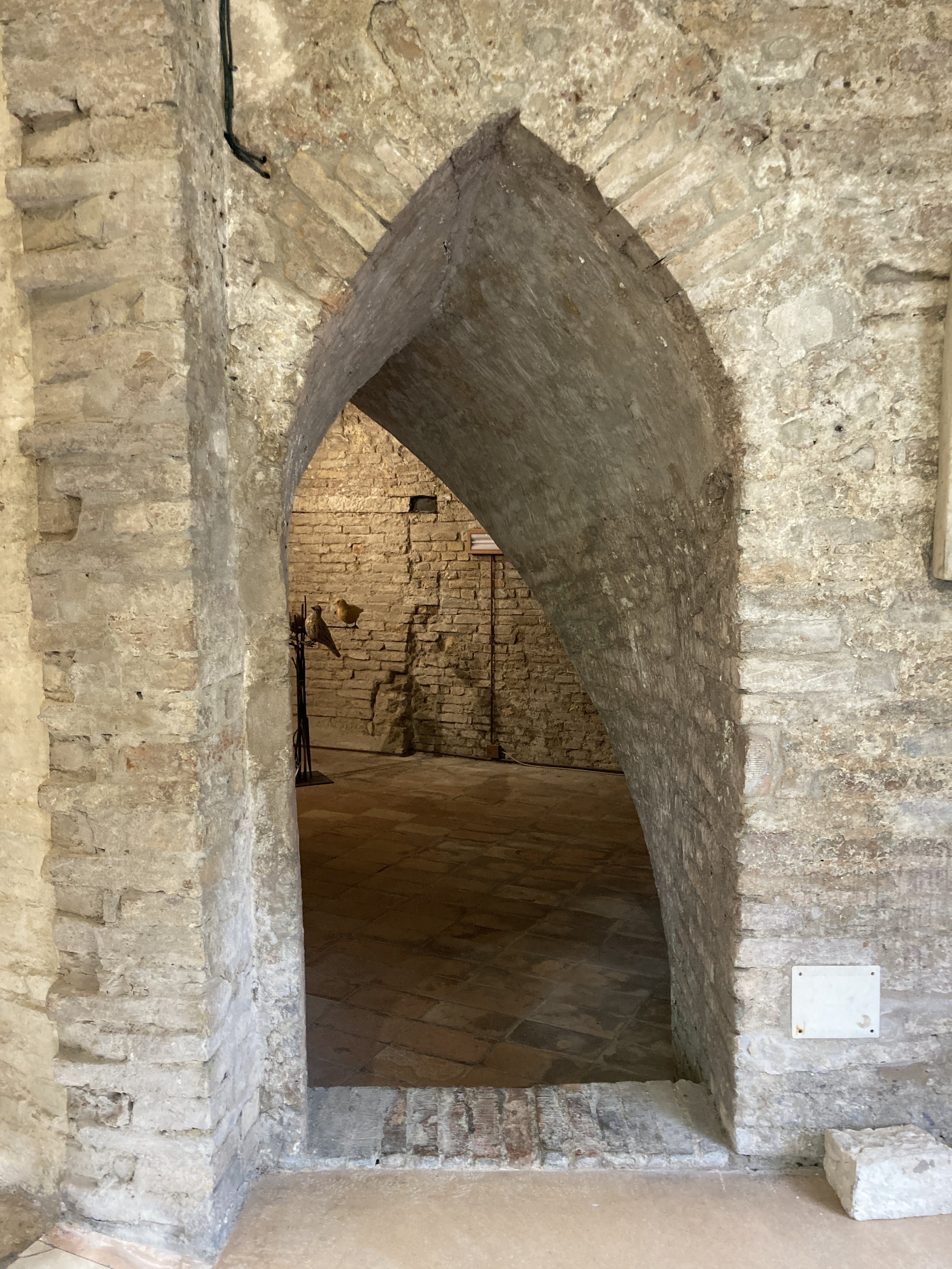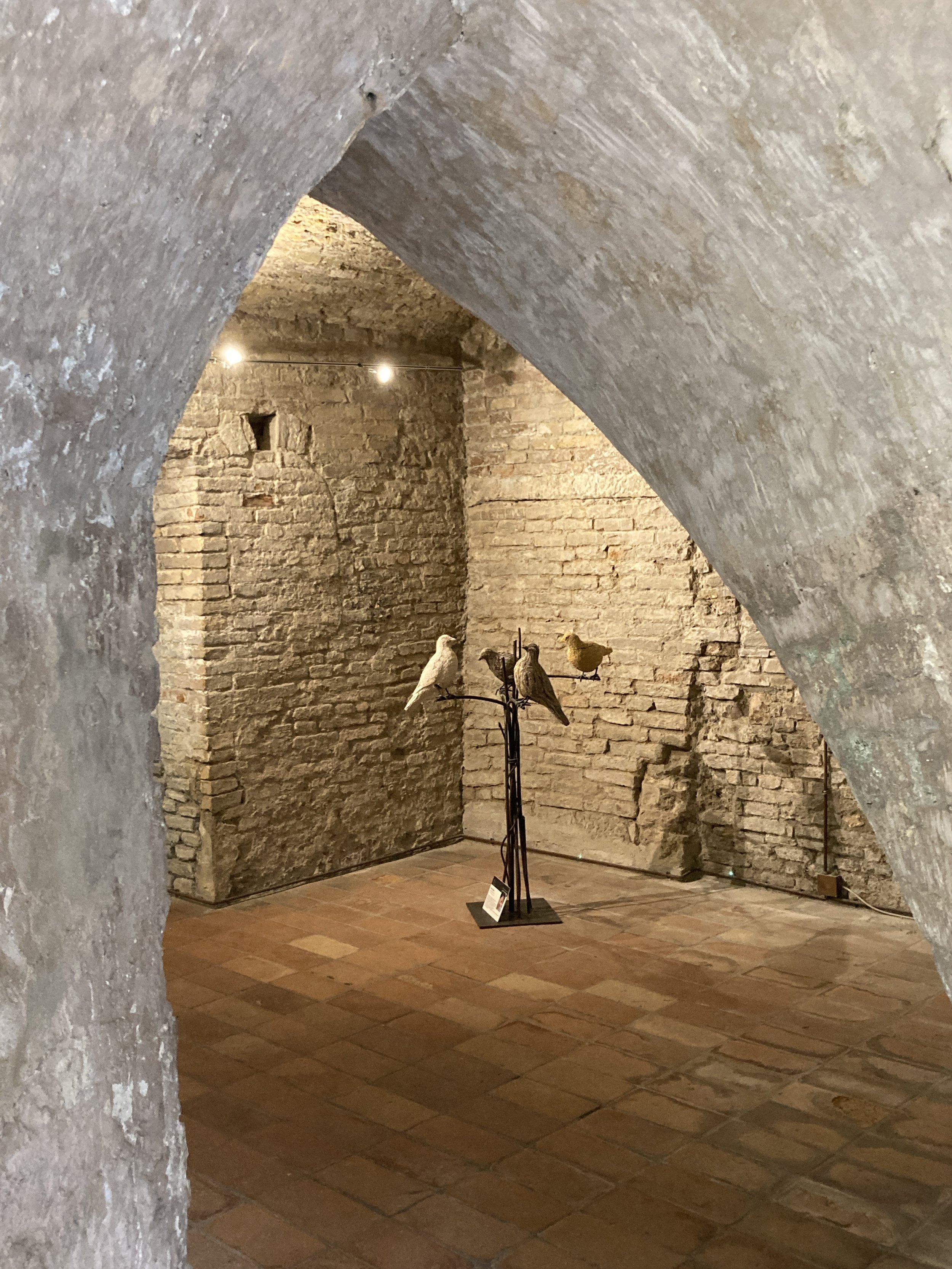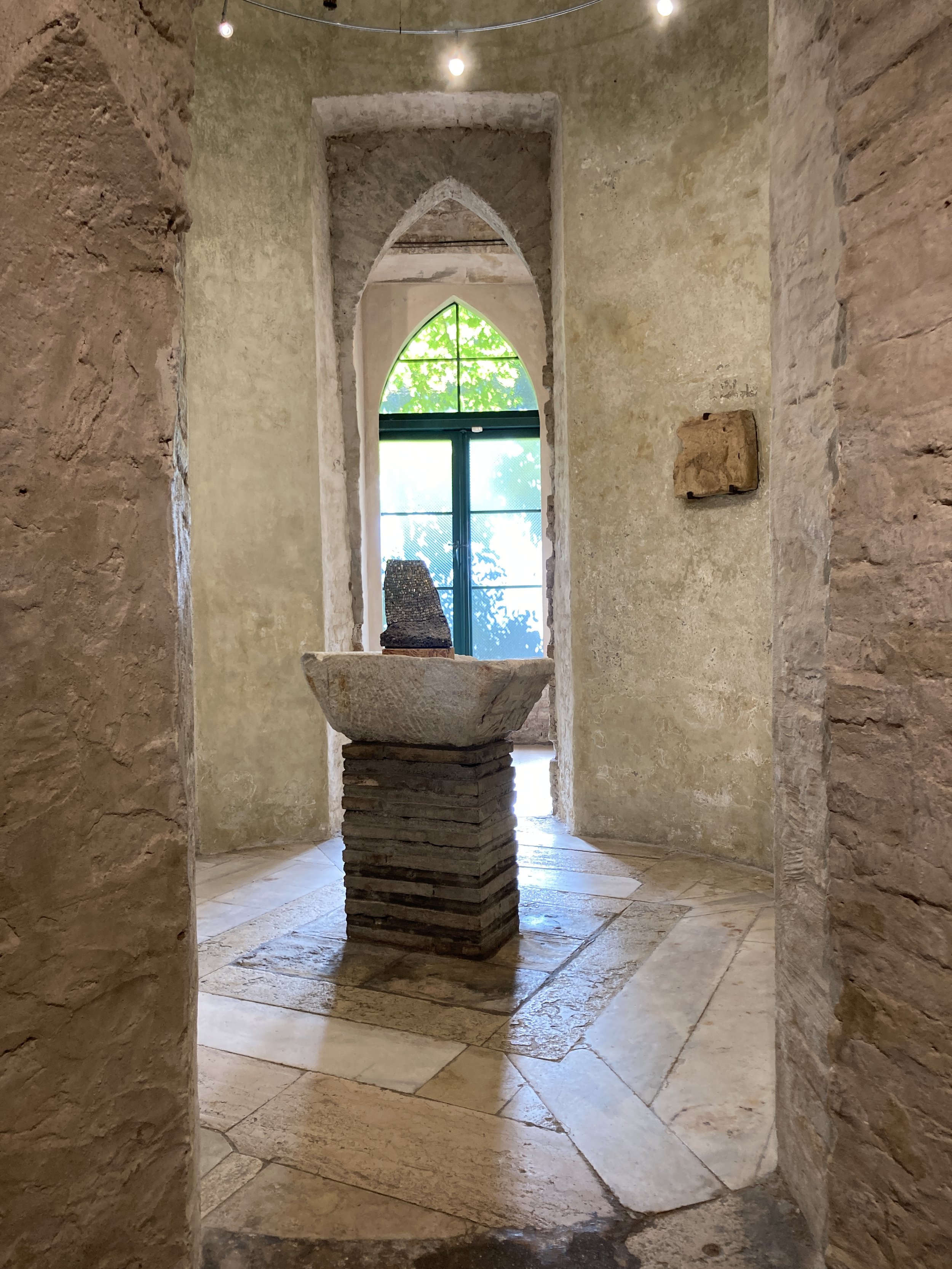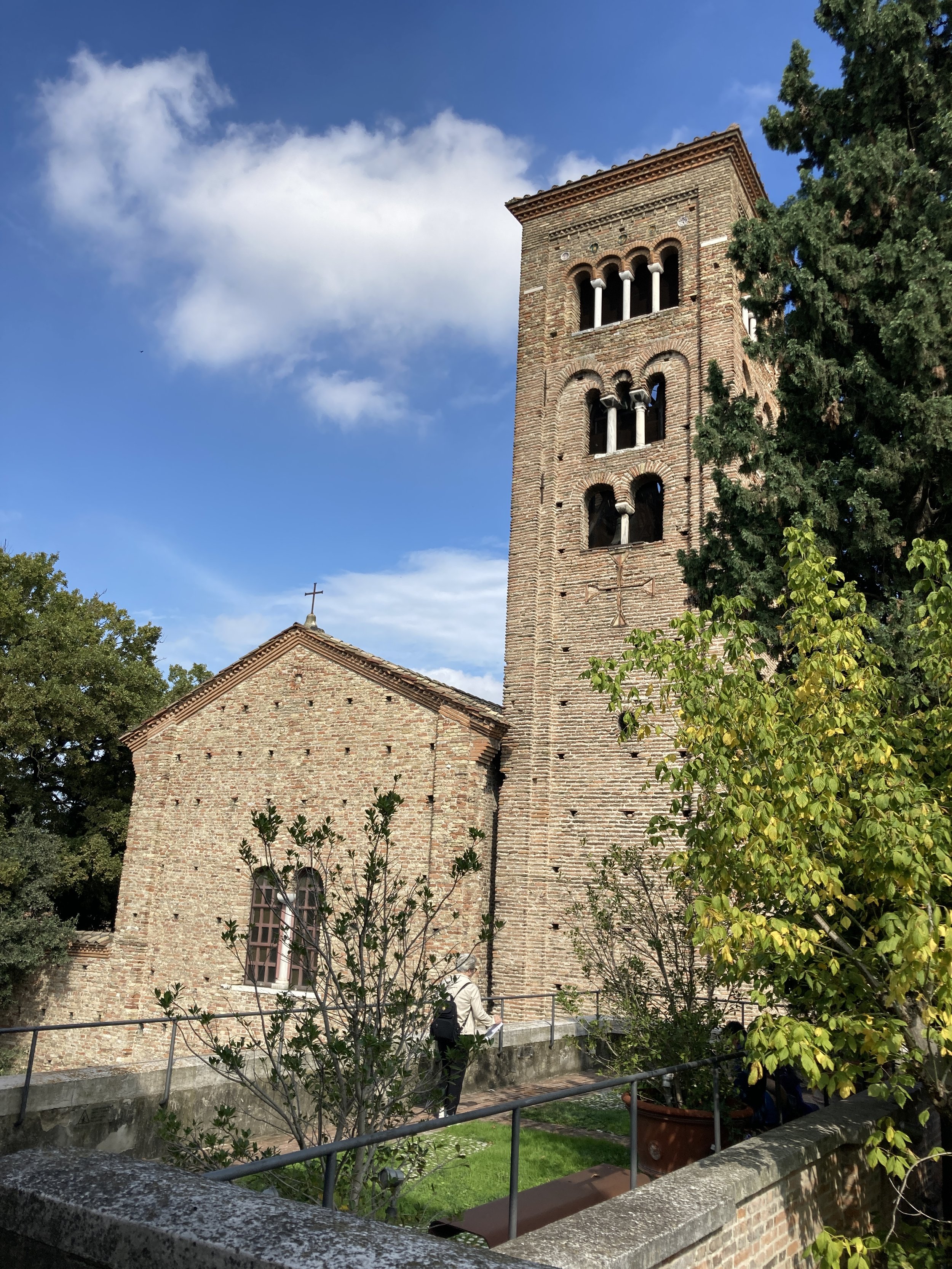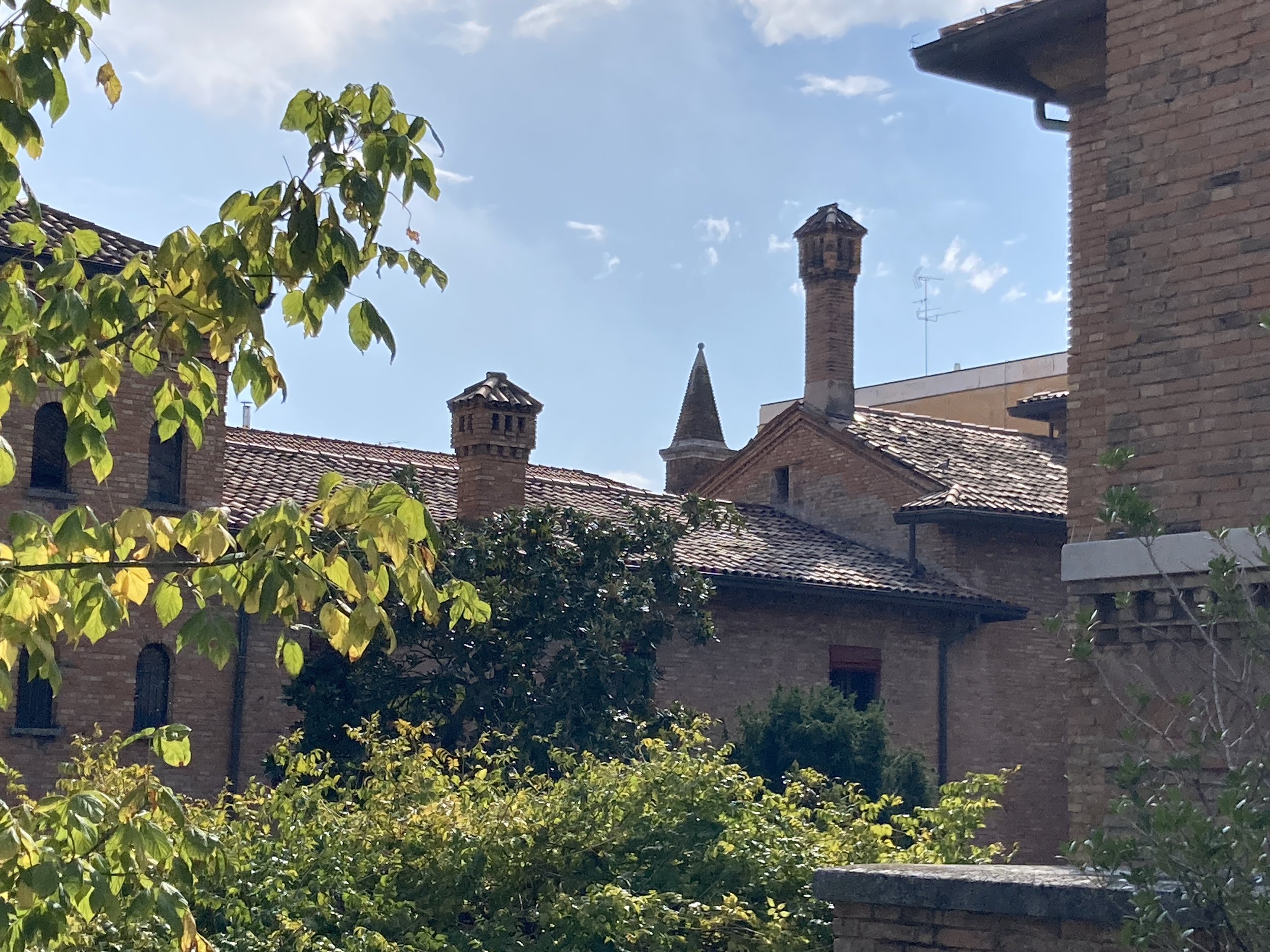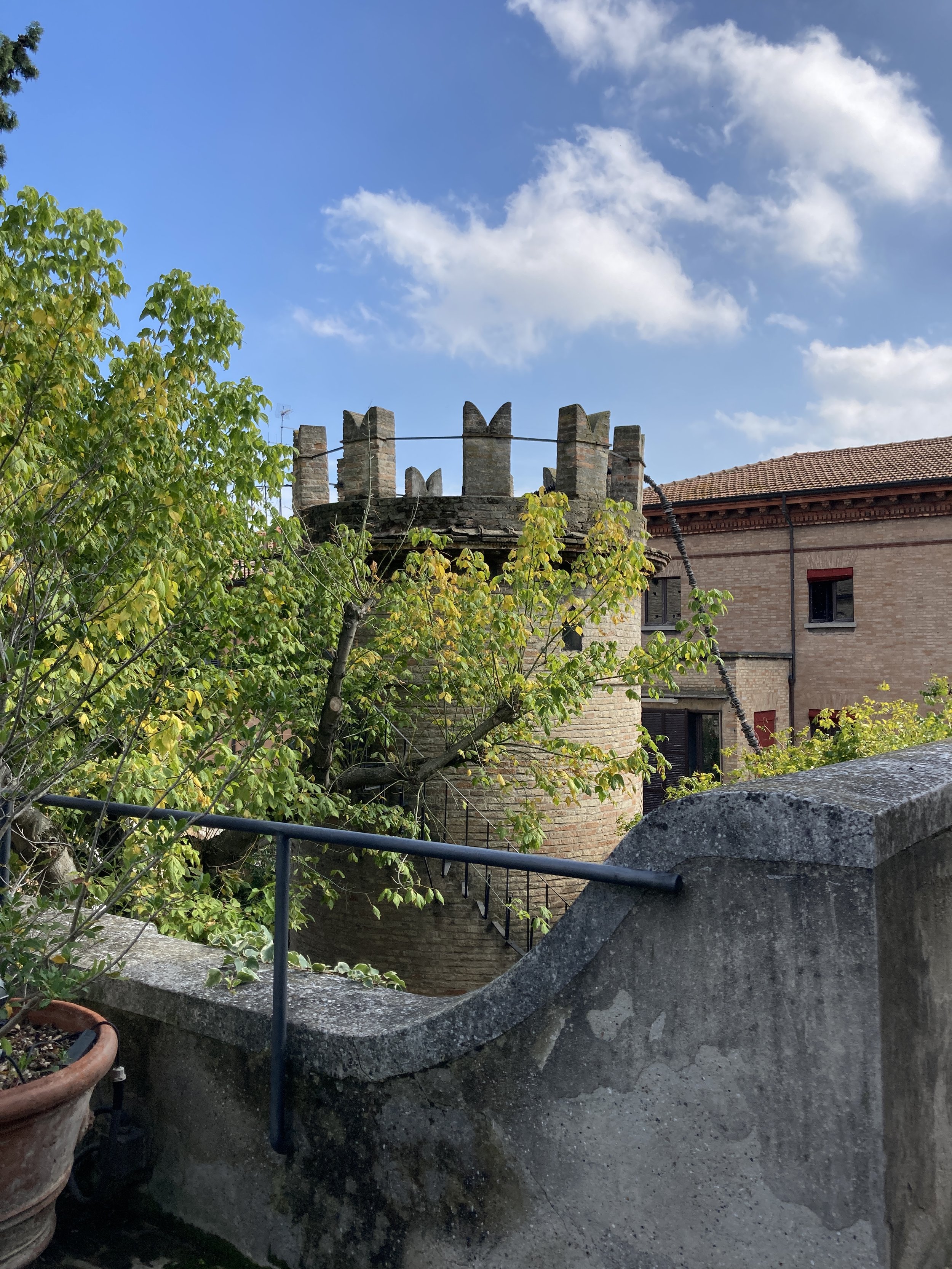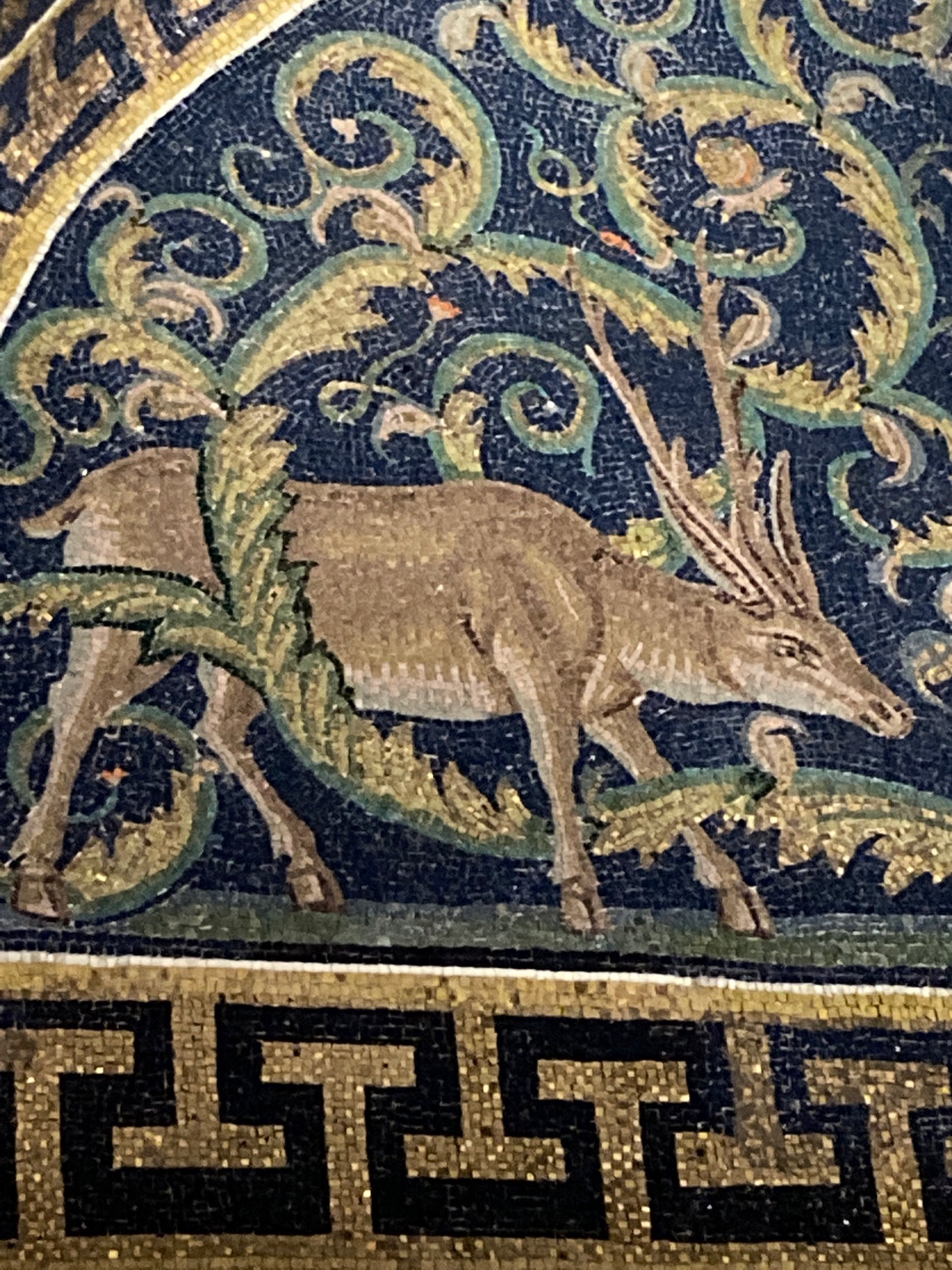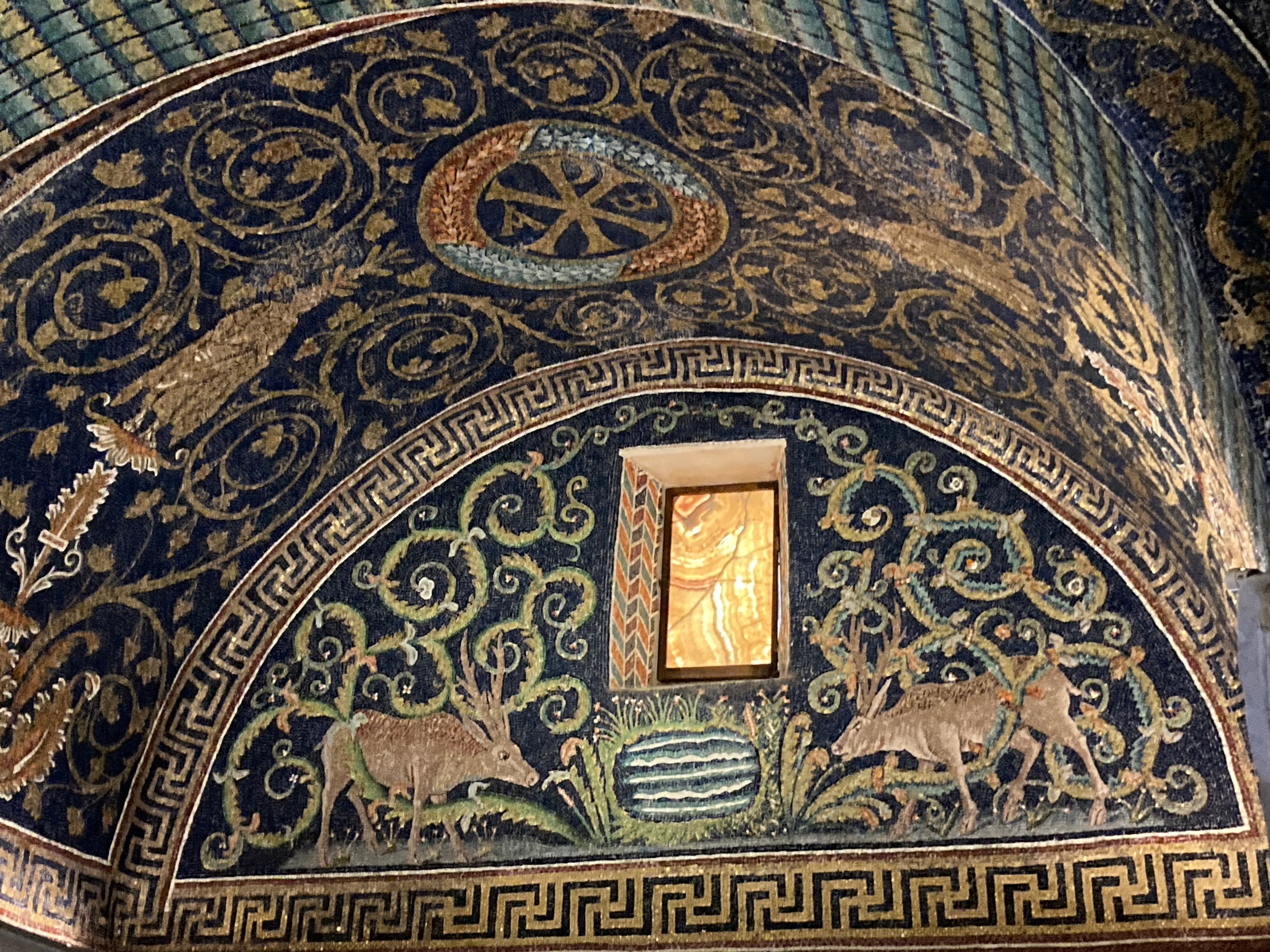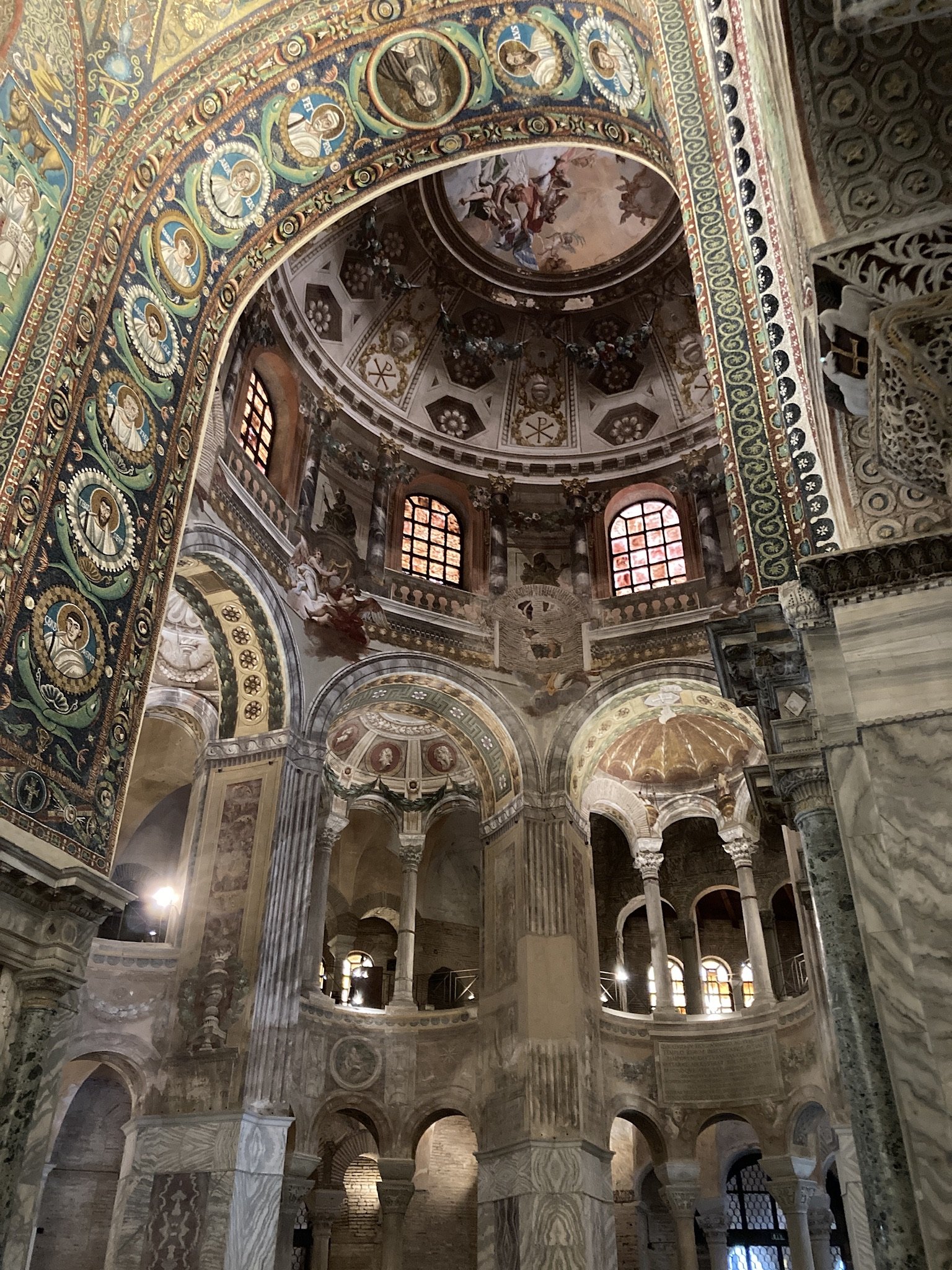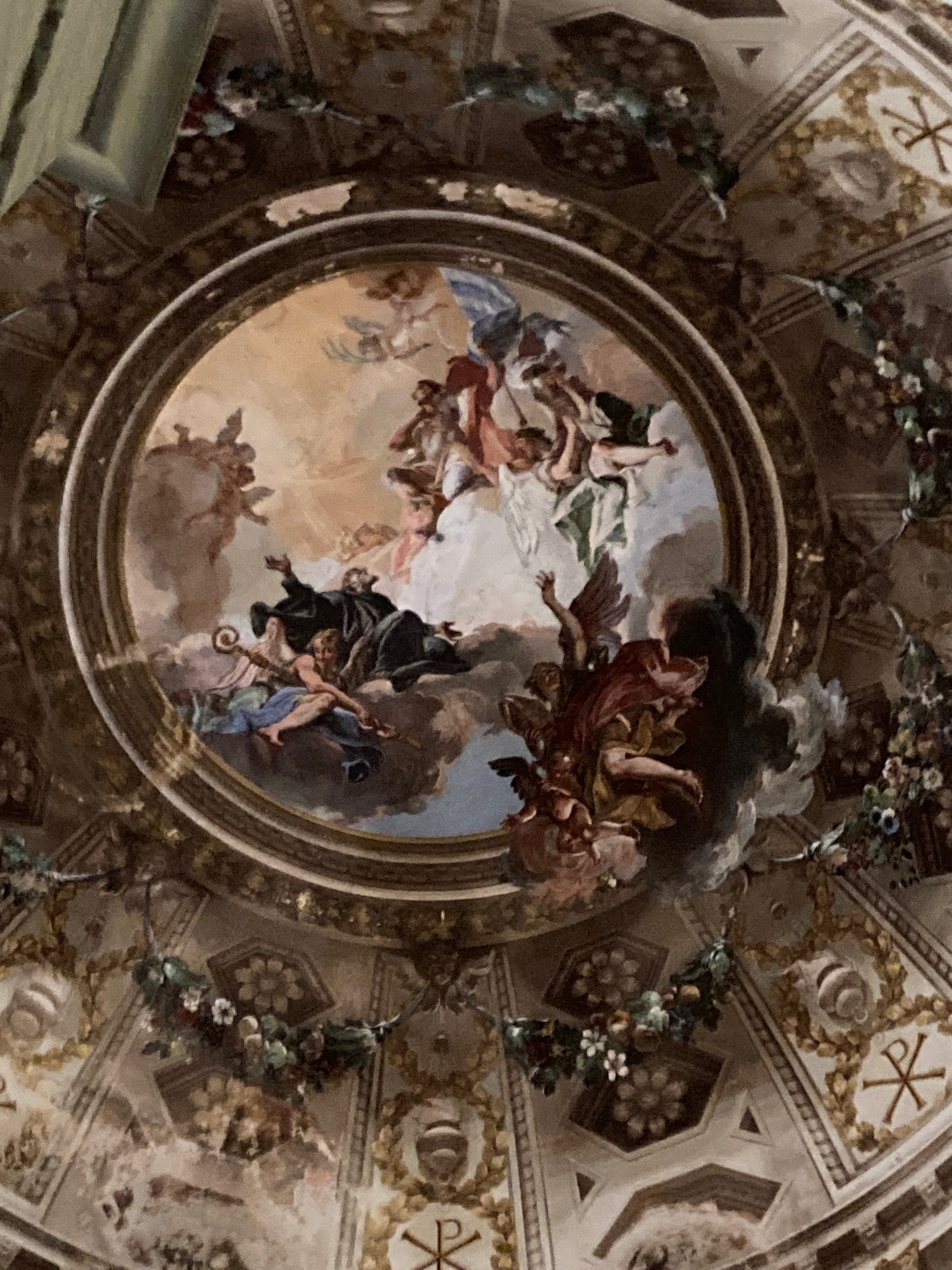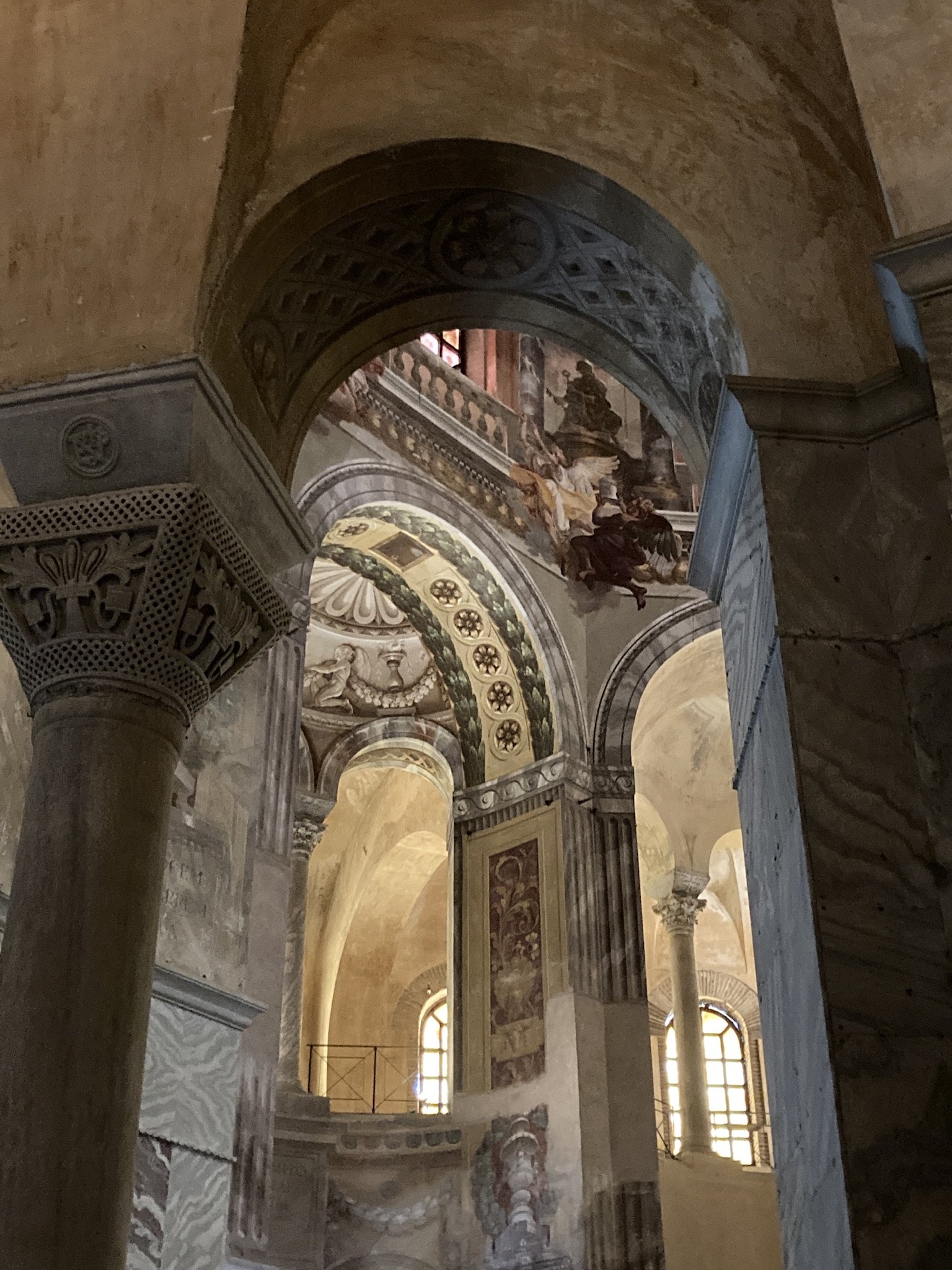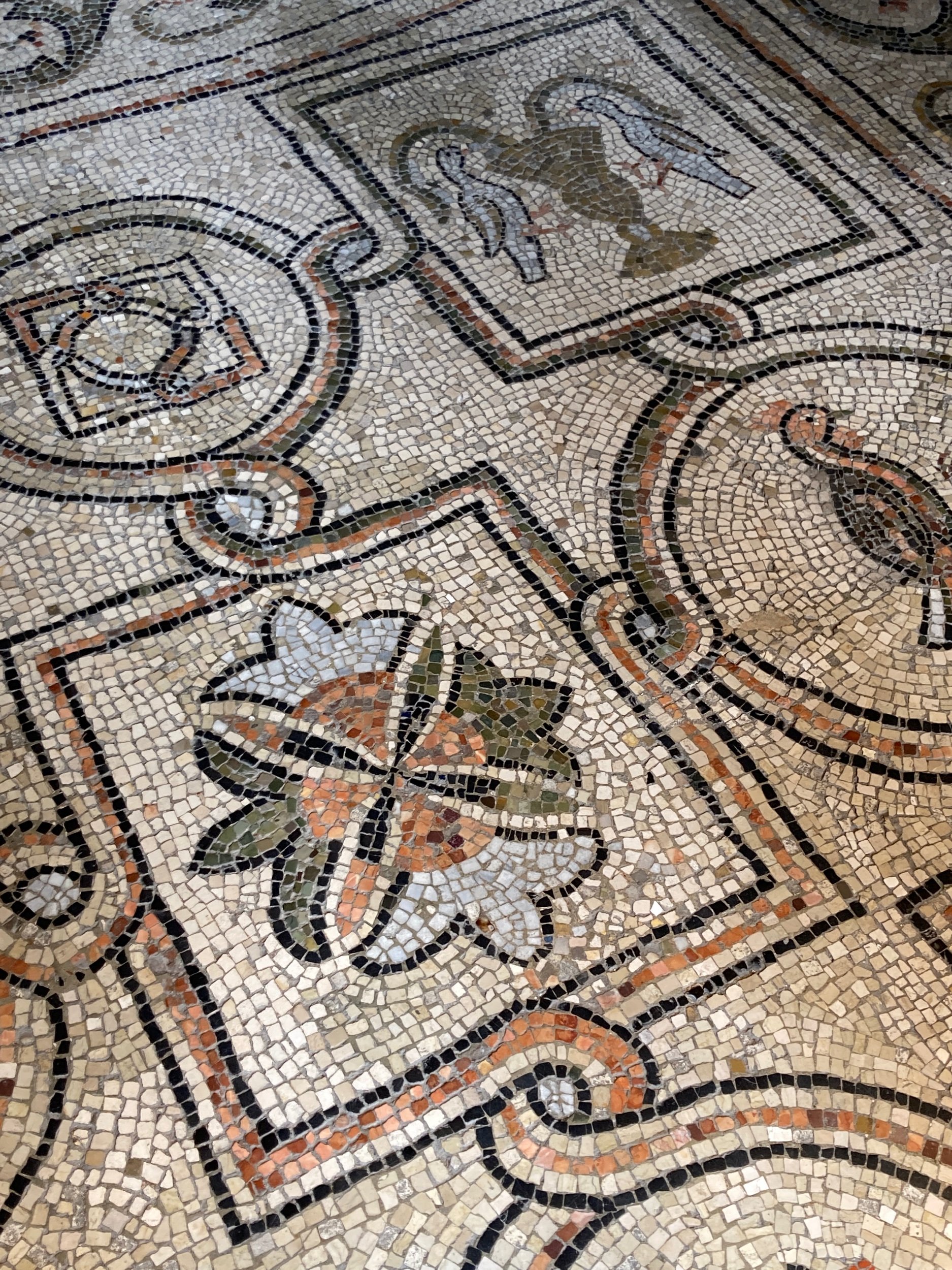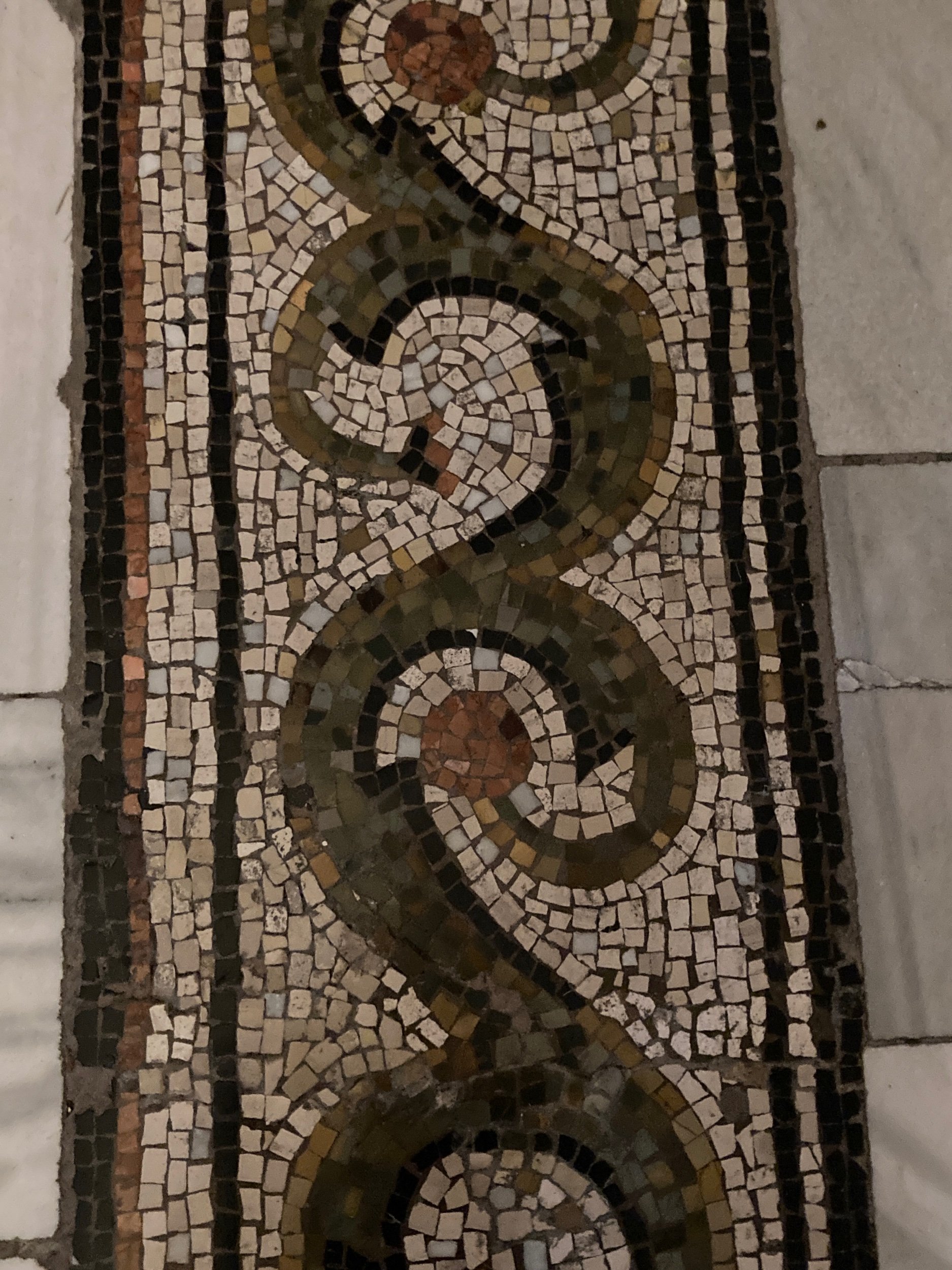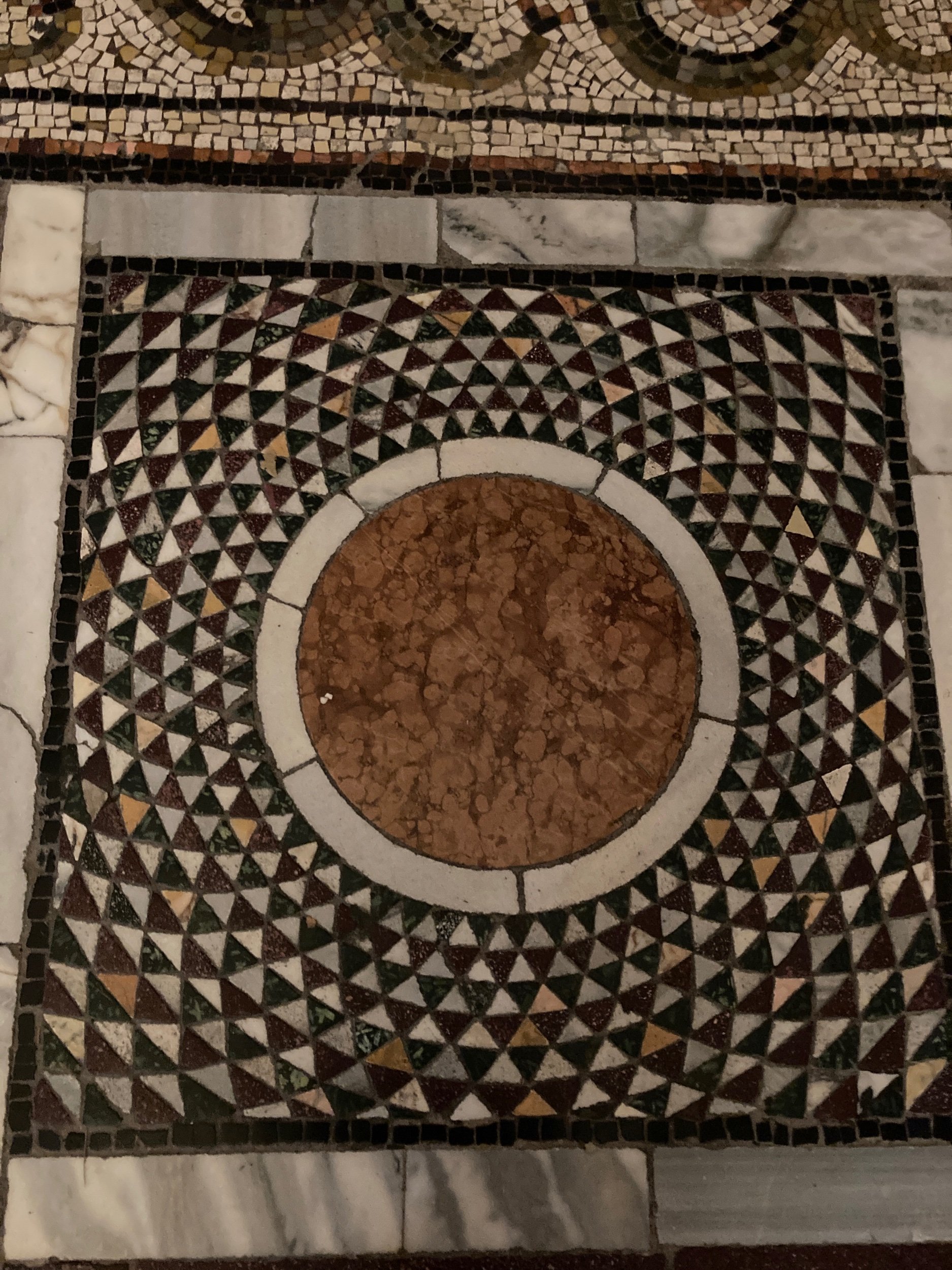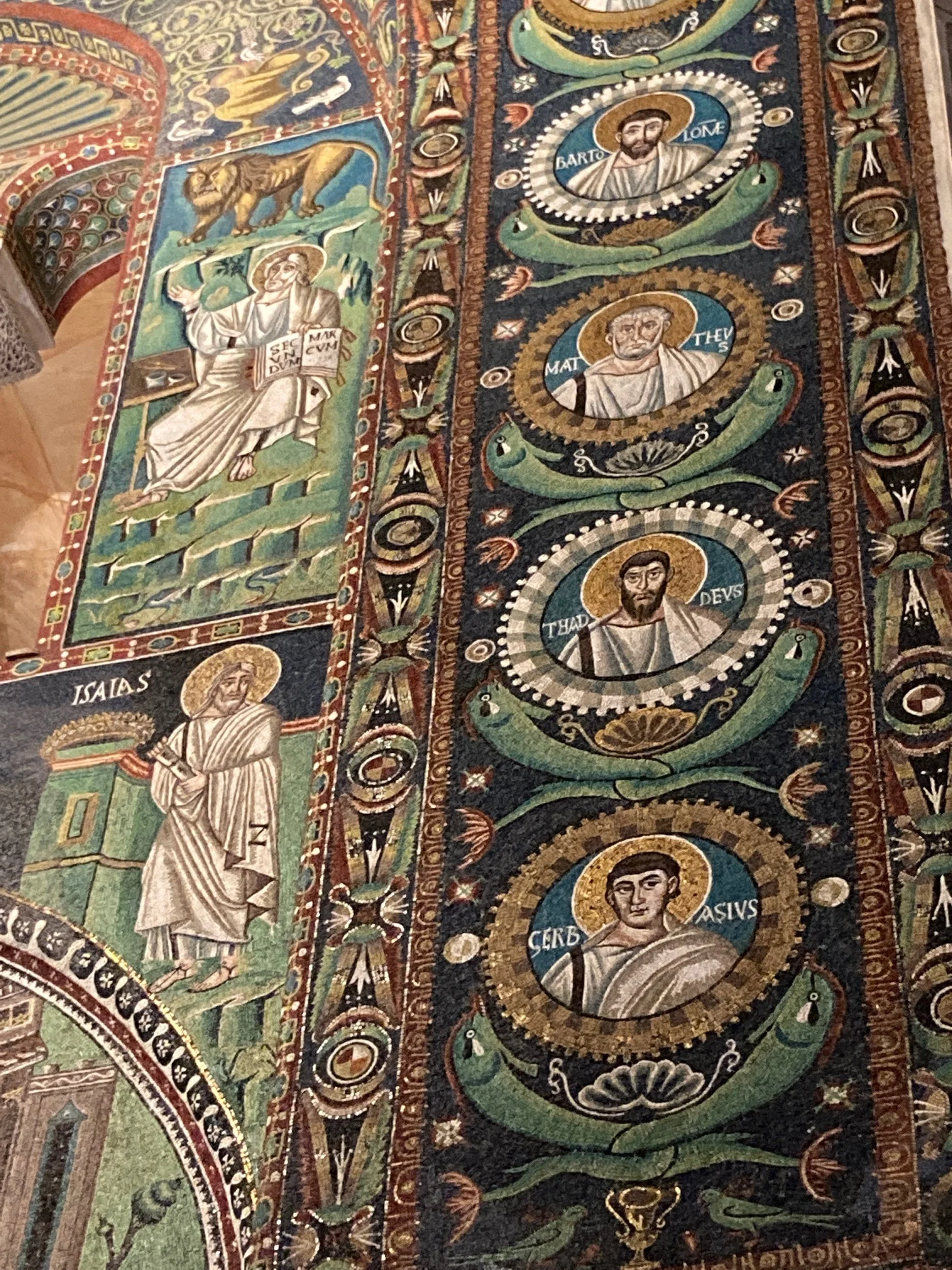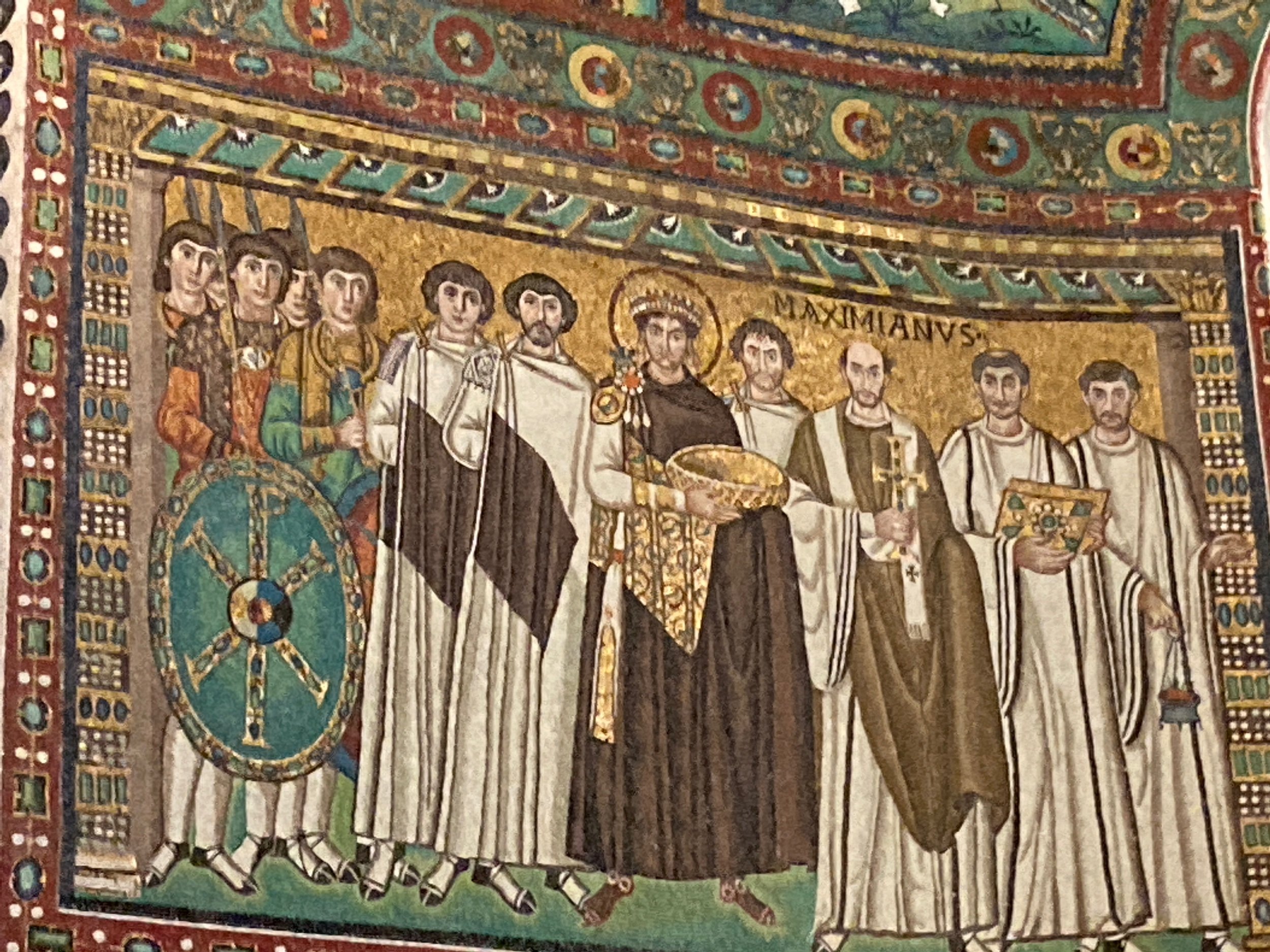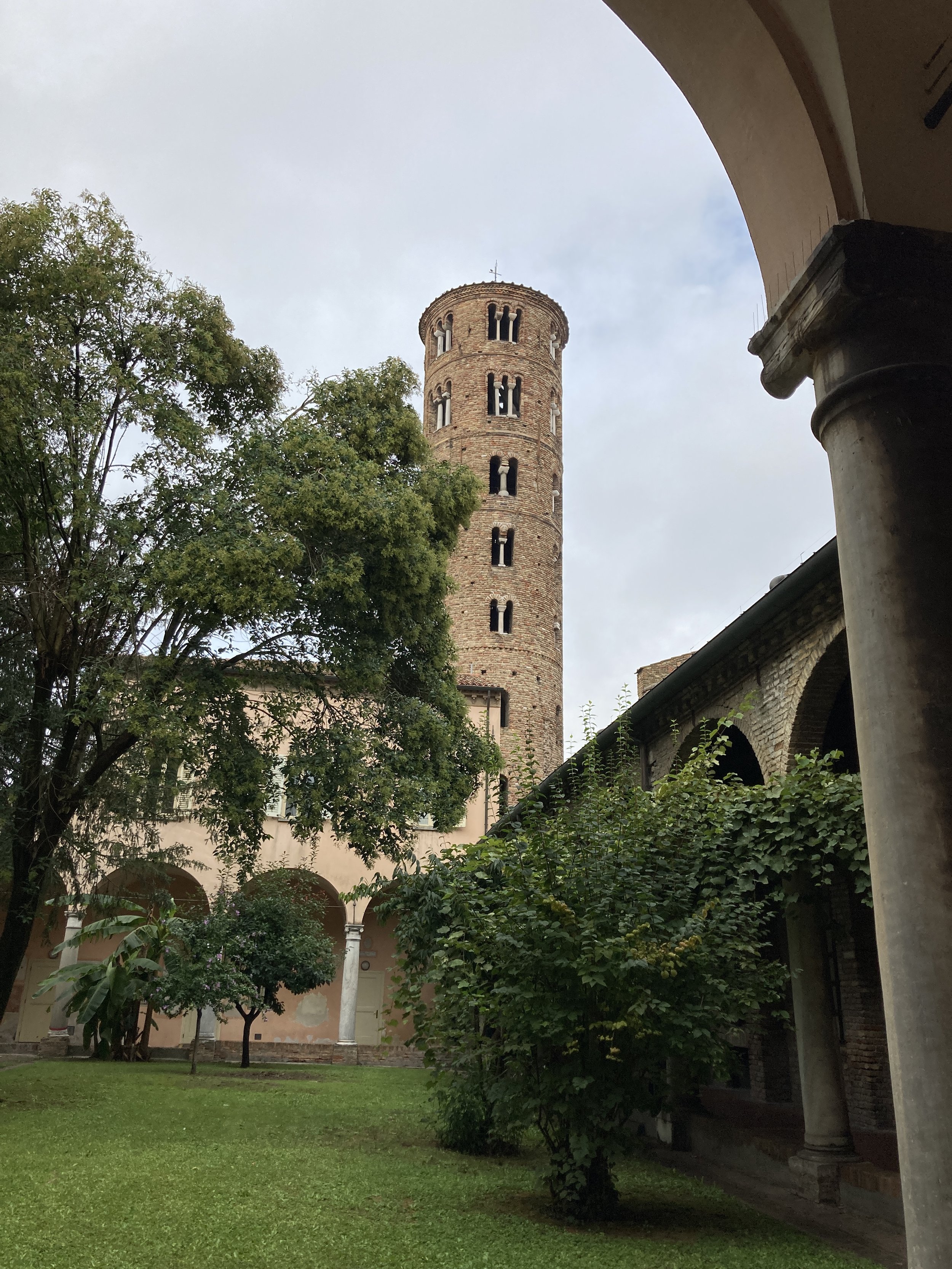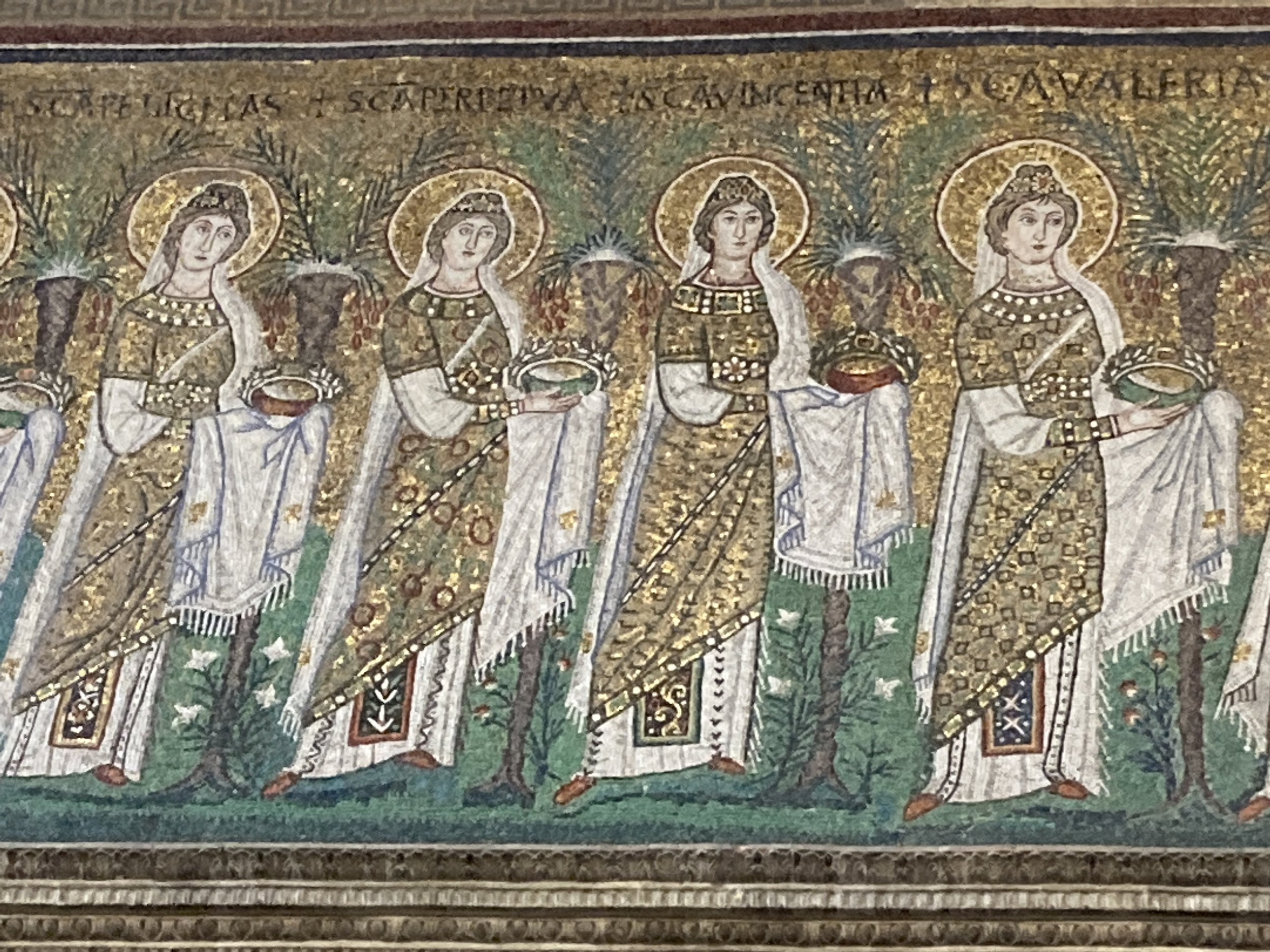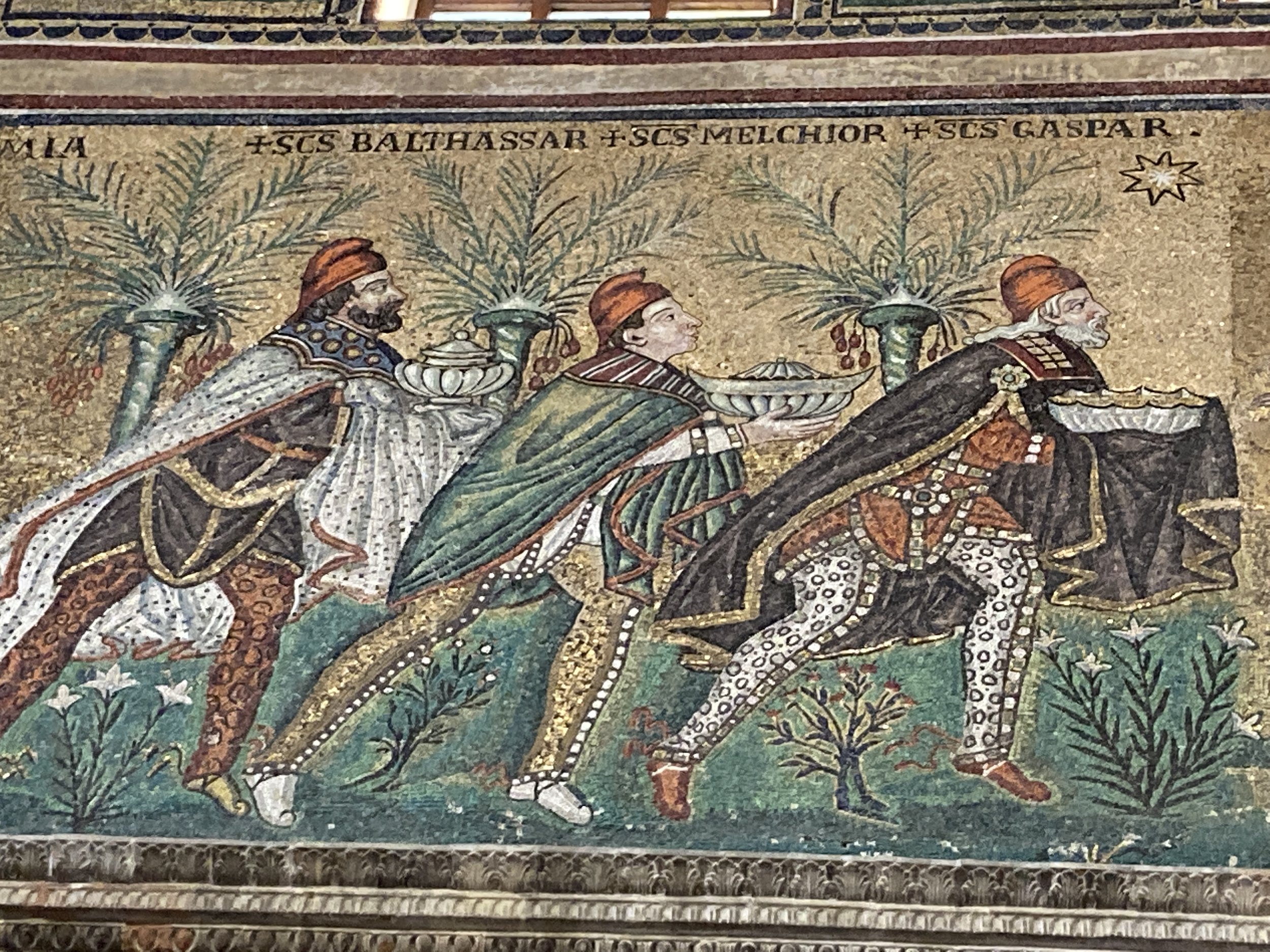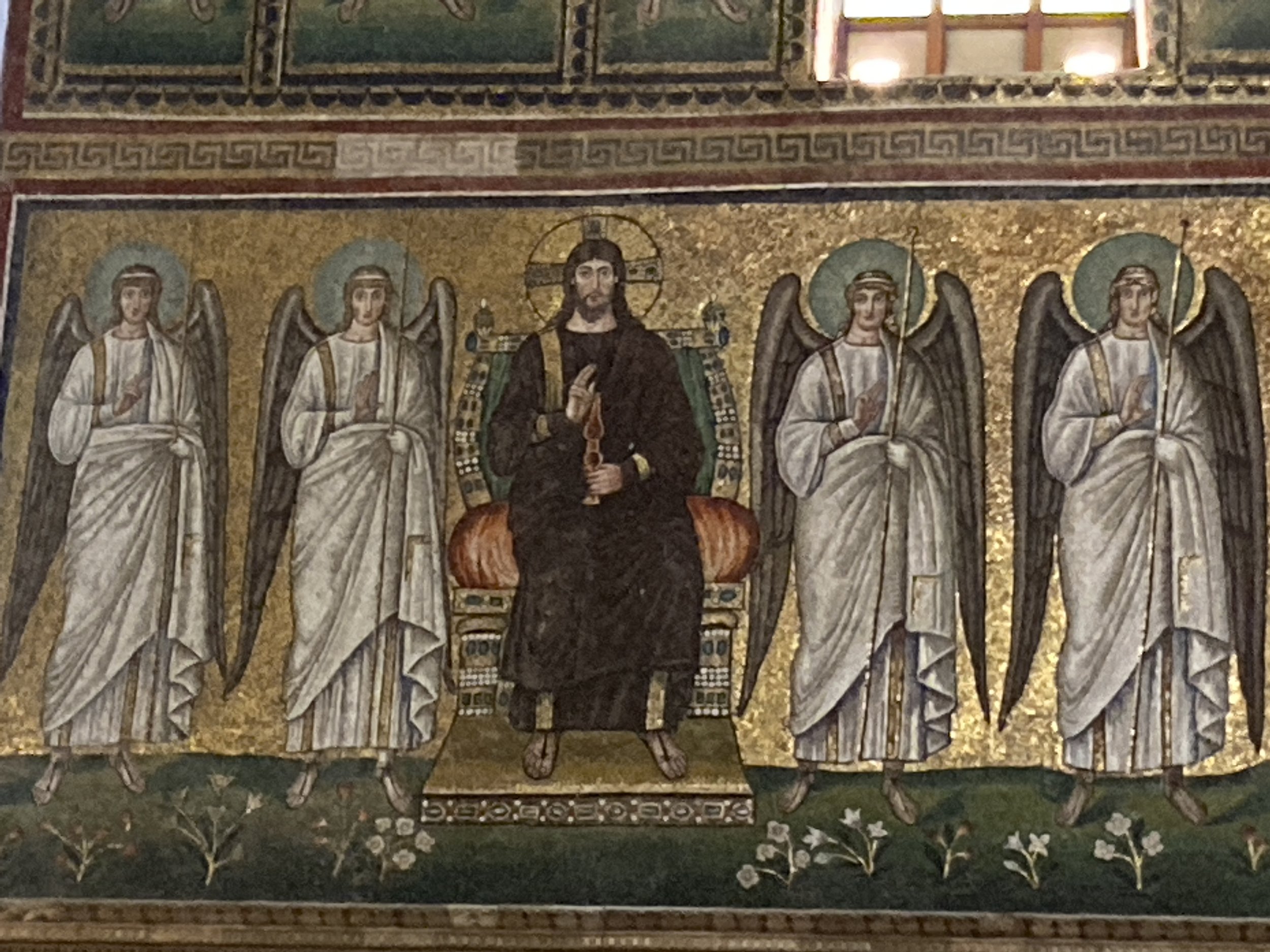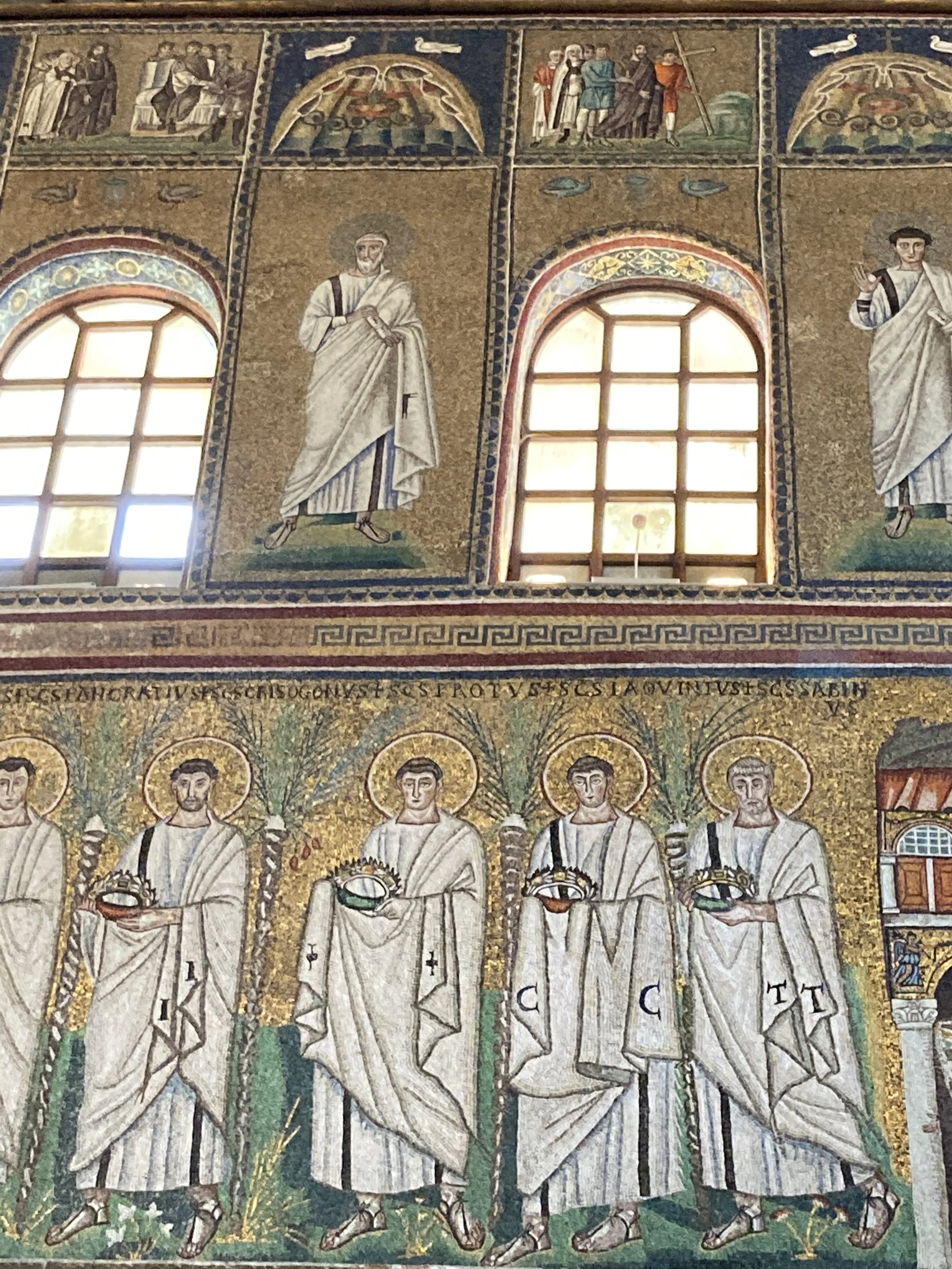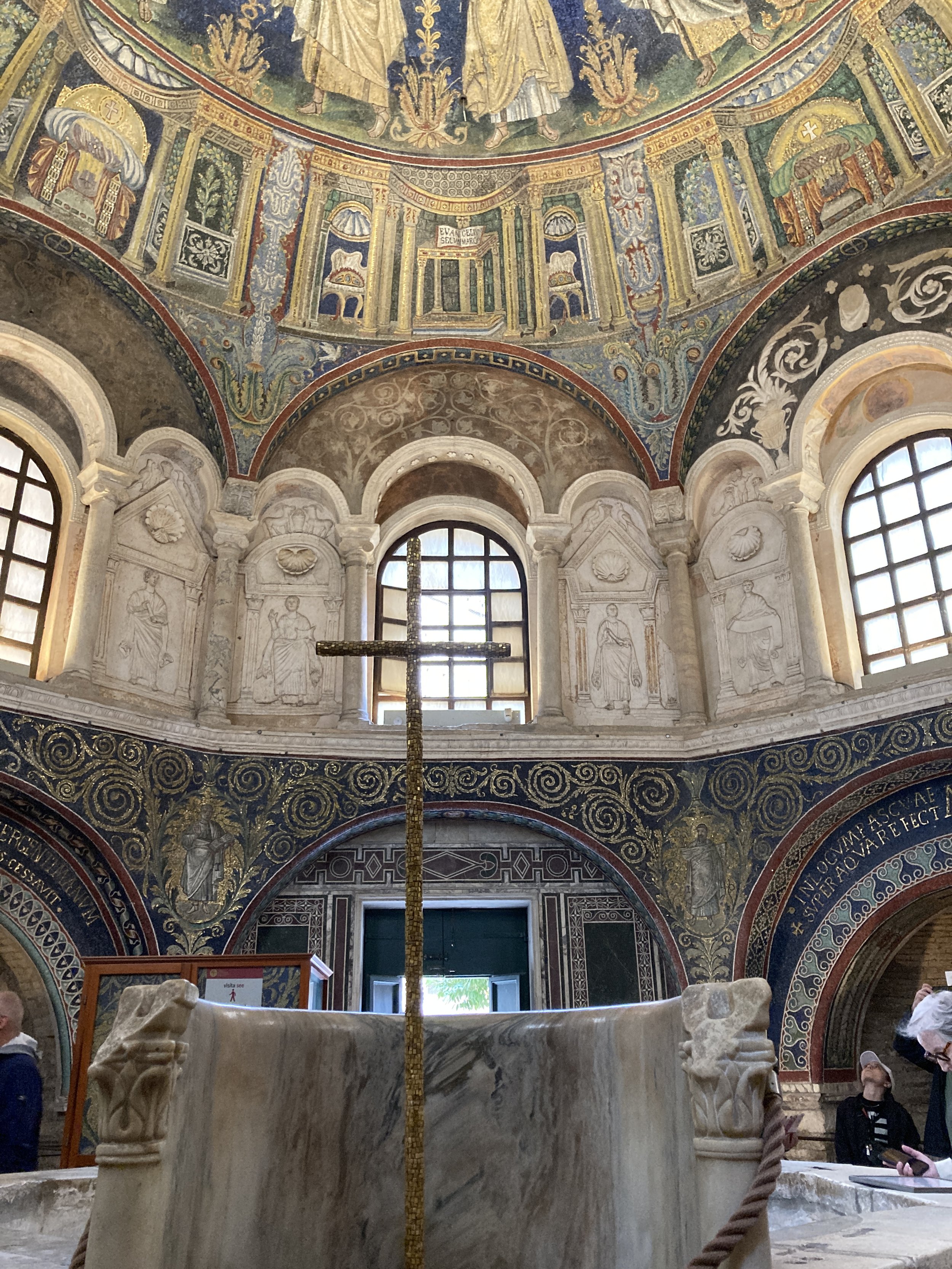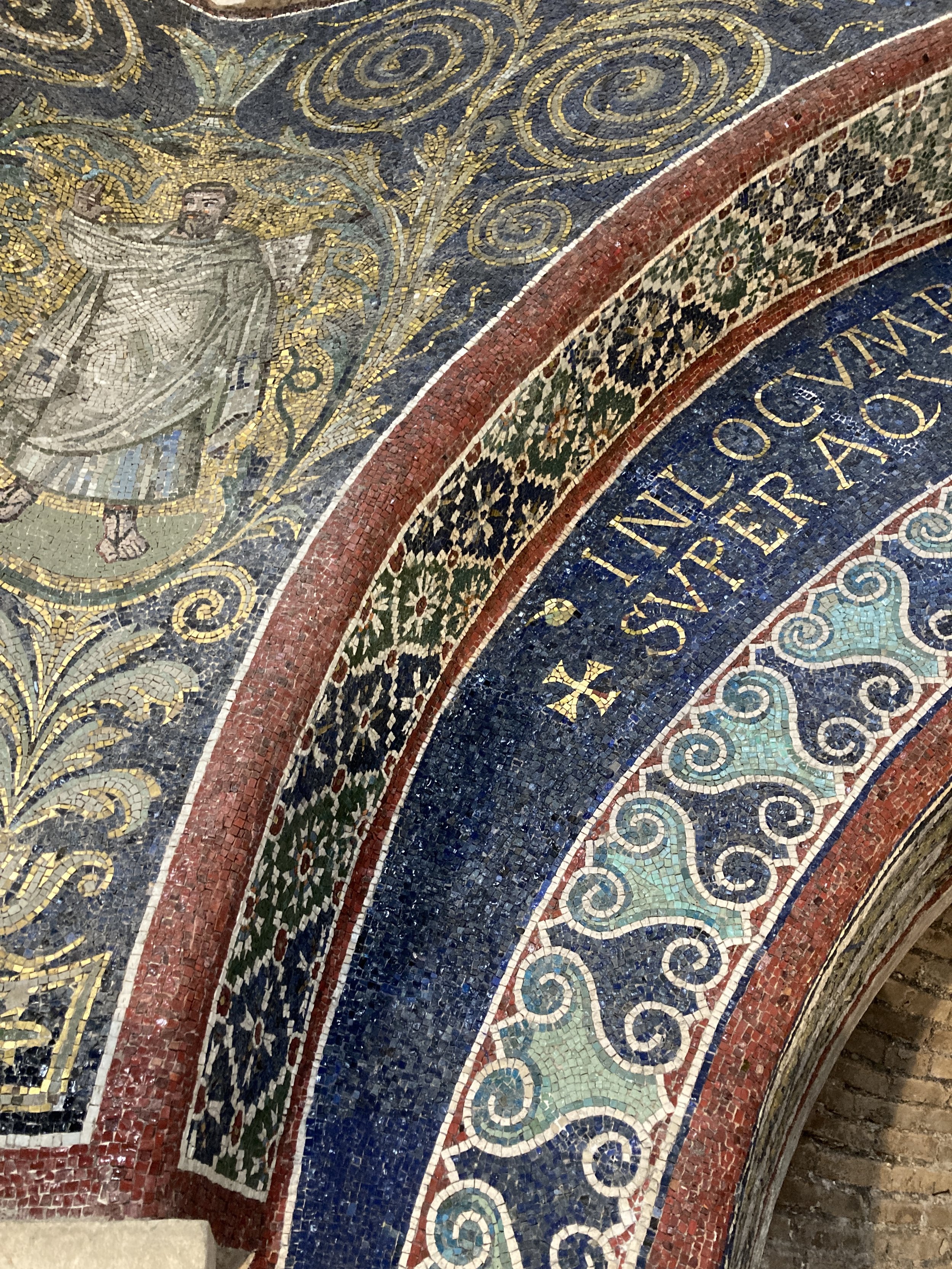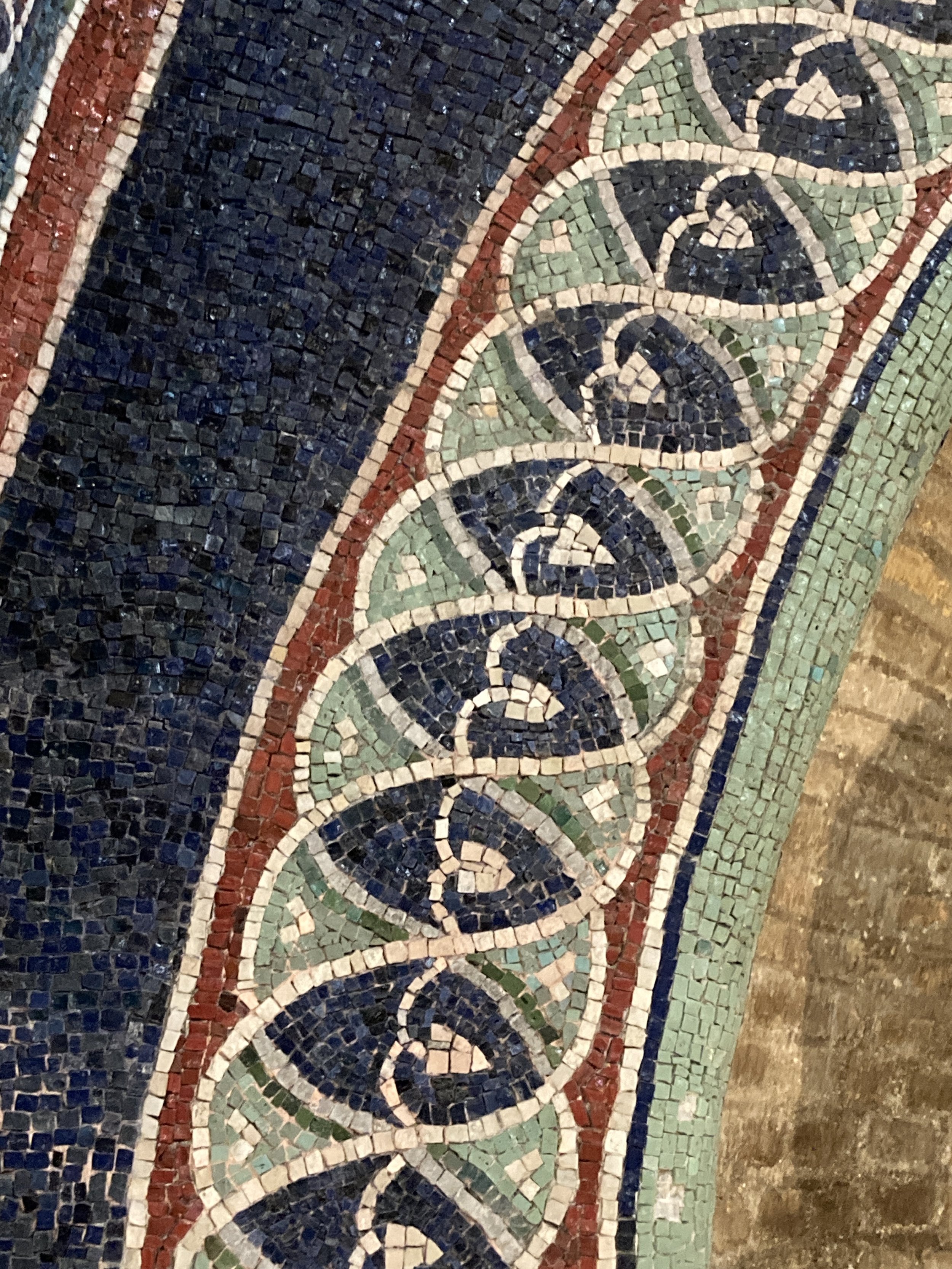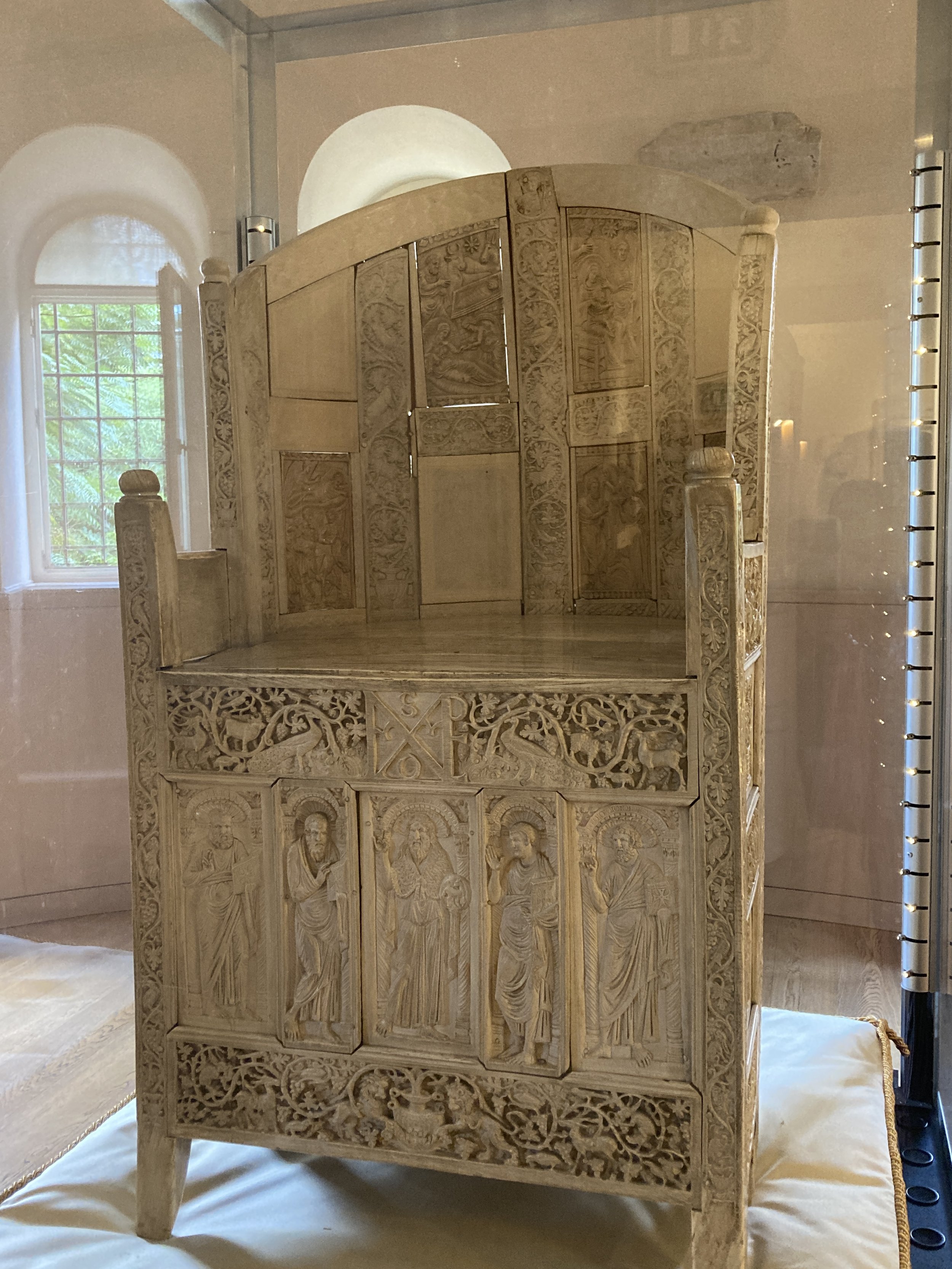The Rasponi Gardens in Ravenna
With all of the important historic sights and stunning mosaics to see in Ravenna it is important to take some time out. A stop for a coffee or a leisurely lunch provides time to reflect and organize one’s impressions and memories. Even better is to stop by a pretty garden for a few moments of quiet between all the monuments. On a recent trip to Ravenna, two small gardens provided a much needed break in my sightseeing. Both were created by the Rasponi family, who were important economic and political forces in the years between the 1500’s and 1800’s.
Giardino delle Erbe Dimenticate (also called Giardino Rasponi), Ravenna
The first garden was a purely accidental find. While walking across town I spotted a sign for a botanic garden just off Piazza J.F. Kennedy and behind the Palazzo Rasponi dalle Teste. Inside was the sweetest small space called the Giardino delle Erbe Dimenticate (The Forgotten Herb Garden). Originally a walled garden for the oldest Rasponi palazzo in Ravenna, it was recently restored and now serves as a public space. It is not a big garden, just large enough to have a central fountain surrounded by flower and herb beds. Pomegranate and apple trees provide shade. Small tables are scattered throughout - perfect spots for a break from sightseeing or for a bit of lunch from the cafe at the front of the garden. These little almost-hidden spots are some of the most enchanting places to discover.
The second garden space was the Giardini Pensili (Hanging Gardens). The gardens, along with the Rasponi Crypt, are the oldest surviving parts of another Palazzo Rasponi, dating from the late 1700’s, most of which was destroyed by fire in the 1920’s. Today the gardens and crypt lie within the Palazzo della Provincia complex in Piazza San Francesco, not far from Dante’s tomb. The gardens are spread over several terraces which climb up around the central tower housing the crypt. The first garden is on the ground floor and set around a large 3-tiered central fountain. There are hedges and trees and a wonderful feeling of serenity here. From the entry garden, a path leads to the crypt.
The lowest level of the Giardini Pensili (Hanging Gardens)
The crypt most likely served as a small family chapel, it was never used as a burial space. It has wonderful curved brick walls with deep arches between several small rooms. The floors contain some ancient mosaics. Today small art pieces are on display.
Outside the crypt, a staircase leads to the next level of the gardens. Here is a wonderful, restful spot - a shaded arbor with views over the lower garden. What a cool and refreshing spot this must have provided the long ago Rasponi family. Or perhaps it was under this shade that Lord Byron sat with his lover, the Contessa Guiccioli, when he was in Ravenna. The arbor certainly has a romantic air about it.
The top level of the gardens shift the view from the interior of the complex to the outside world. The Basilica of San Francesco and its campanile (bell tower), along with distant views of rooftops and towers, can be seen from this open platform with its interesting ground cover of grass and white rock. There is also a great view of the merlons atop the tower which houses the crypt (the merlons are the M-shaped brick pillars at the very top of many towers and castles).
The climb down from the top gives a different perspective on the gardens and the tower housing the crypt.
Just outside the complex is a perfect place for another break - the Caffè Pasticceria Palumbo, set just under the portico in Piazza San Francesco.


